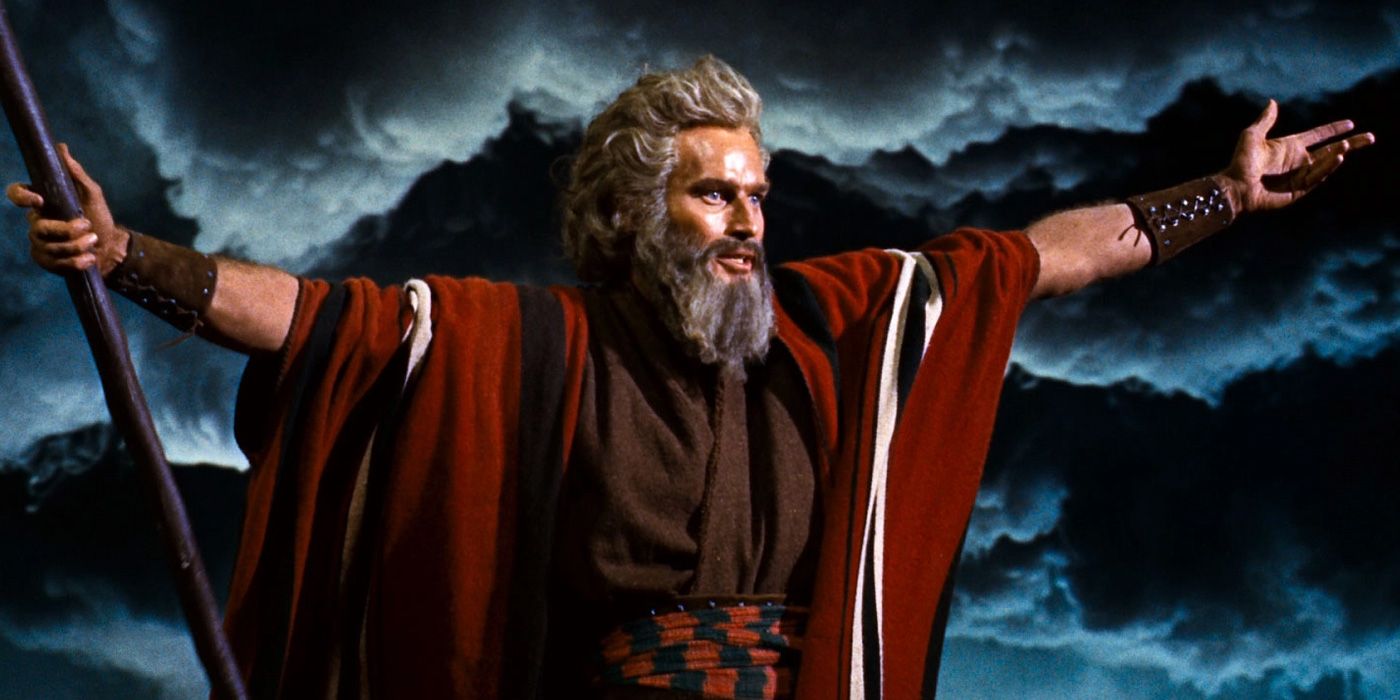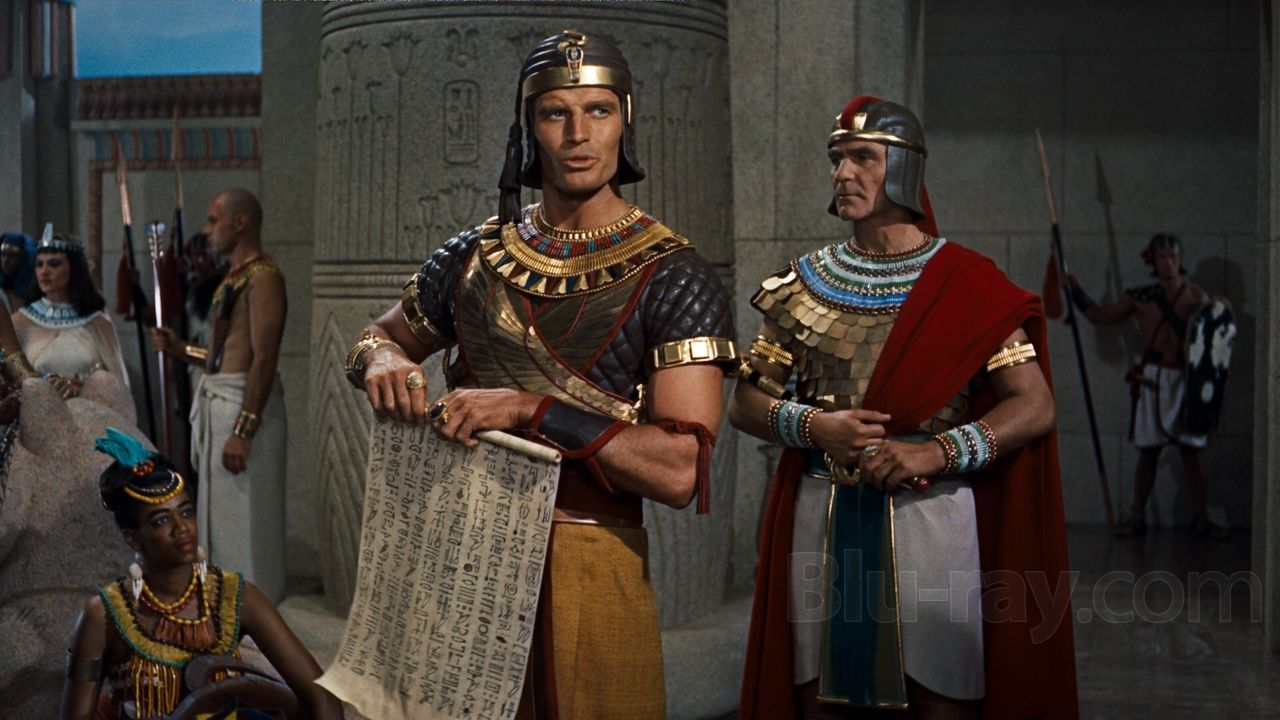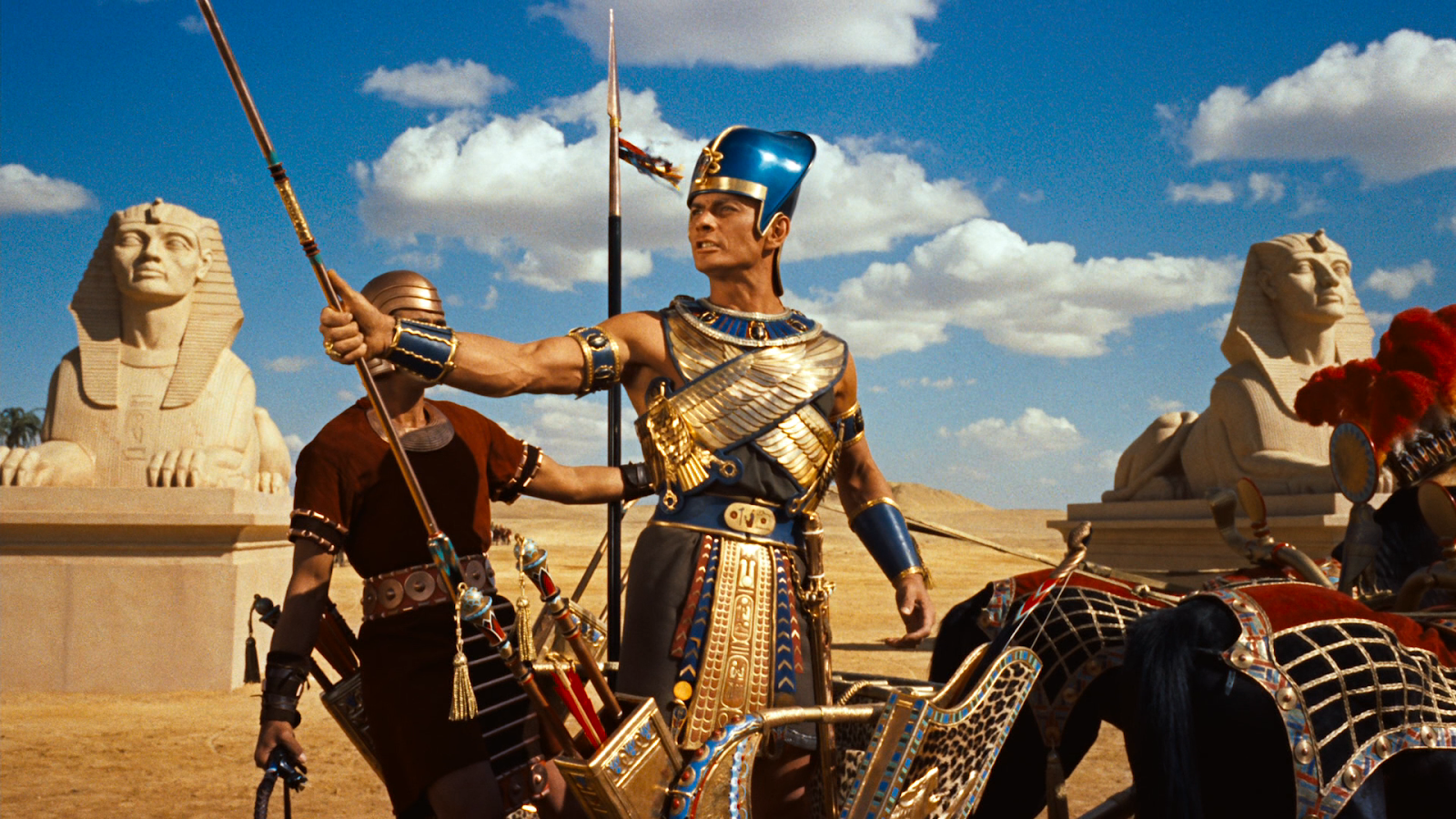The modern moviegoer may recoil at the thought of Cecil B. DeMille’s 1956 biblical epic The Ten Commandments. Nothing about it is particularly modern, and its story is one of the oldest we know. For a film that runs three hours and forty minutes (including an Overture and Intermission), that may seem like a major investment for an audience member who already knows that the Jews makes it out of Egypt. So why bother with an Old Hollywood telling of an Old Testament story that will take up your afternoon?
Watching the new 4K of The Ten Commandments was my third viewing of the movie. I had previously watched it on Blu-ray and then a couple years later when it received an anniversary screening in theaters. It’s a film I hadn’t seen until prompted by wife (who grew up with the movie), and I’m glad I did because watching The Ten Commandments is a way to lose yourself in a film completely divorced from any modern consideration we now have for moviegoing. There’s not a hint of irony or meta-commentary to be found. It is completely itself with all the flaws and details that only a biblical epic made in the 1950s could bring.
This kind of distance makes The Ten Commandments a unique experience that’s separate from other studio epics like Lawrence of Arabia and Gone with the Wind. It is firmly, unquestioningly drawing out the story of Moses (Charlton Heston) in such a way as to embrace the story and yet not being particularly preachy in its telling. It’s a story where God obviously plays a major role, and yet it’s also all the drama that gives the Exodus story its weight like Moses discovering his true parentage, the temptations to stay a Prince of Egypt, and his certainty when he accepts his mission to free the Hebrew slaves and lead them out of captivity.
The film is also very much a reflection of its time and what it chooses to uphold. For DeMille, he sees this story as one of liberation and freedom more than the sanctity of a religious covenant between God and his people. The scene that gets the most attention in the film and was arguably the hardest one to pull off are not the plagues or even the famous crossing of the Red Sea. It’s the exodus scene where countless costumed extras all make their way out of Egypt. The scene is the centerpiece of the entire film, what everything has been working towards, and DeMille lets his story linger there where others may simply reduce it to a brief montage to get to the action of the climactic crossing of the Red Sea.
This emphasis on freedom likely arises from the Cold War fears of the time where the U.S. positioned itself as the bastion of freedom in the world, especially post-World War II. Building the film around the notion of “freedom” rather than religion gave the film a broader appeal rather than simply saying that it’s solely a movie about Jews for Jews. Even though the U.S. of 1956 didn’t completely embody this notion of freedom (e.g. ask a Black person in the Jim Crow South if they were “free” to cast their vote), it was a nice sentiment that I’m sure DeMille genuinely believed in as this was his second time telling this story (it’s a partial remake of his 1923 silent film of the same name).
But what makes The Ten Commandments so impressive is that while you can pick at it over qualms of casting like white people to play Egyptians or how far is strays from the biblical text, DeMille’s imbues the whole project with an utter confidence that sells every moment. Yes, the film is melodramatic by our current standards and not going for the “realism” we now praise, and yet it’s still hitting the same emotional beats that audiences today can relate to whether it’s Moses wrestling with his personal desire and his larger duty or Ramses’ (Yul Brenner) cold jealousy and entitlement over a throne and power he believes should be his or the beguiling and complex Nefretiri (Anne Baxter) who is both manipulator and yet a victim of circumstances beyond her control.
I get why a film like The Ten Commandments may seem daunting and archaic, but watching the new 4K with its vibrant colors and pristine visuals that capture the gorgeous on-location photography, I was once again shocked at how much the film drew me in. It’s not like I’m a sucker for biblical epics or even 1950s Charlton Heston movies, but The Ten Commandments works because it’s the kind of film that would not only never get made today (look no further than the limp Exodus: Gods and Kings as a basis for comparison), but because it’s a towering achievement that never loses sight of the human stakes in this grand story. It’s epic in the best sense of the word.



